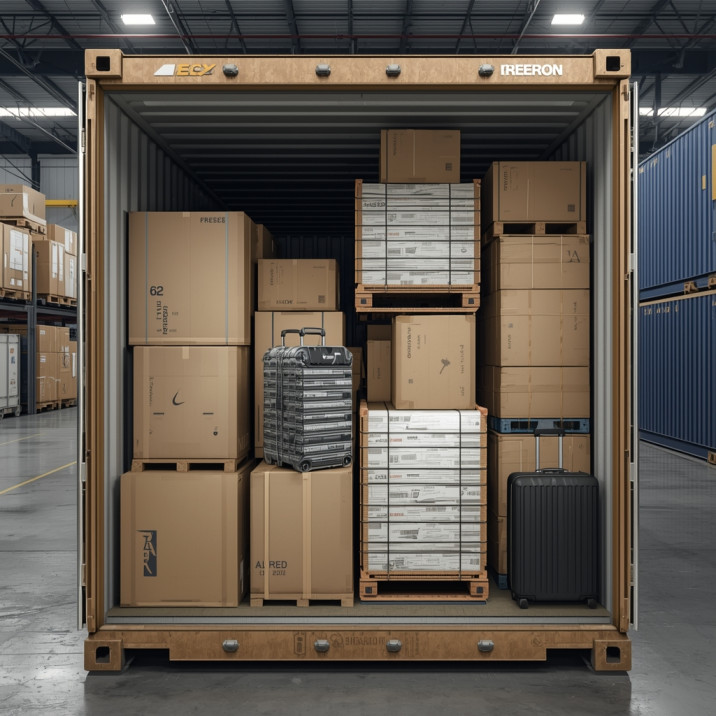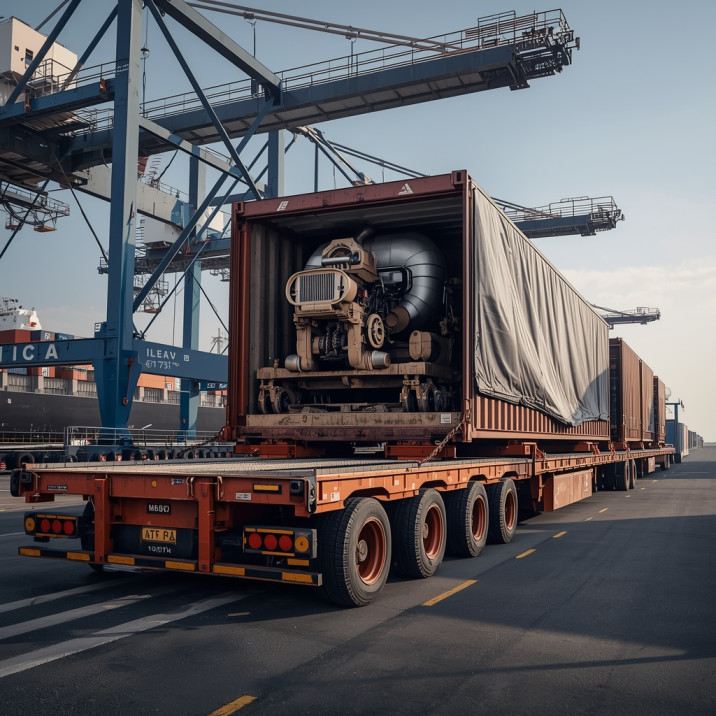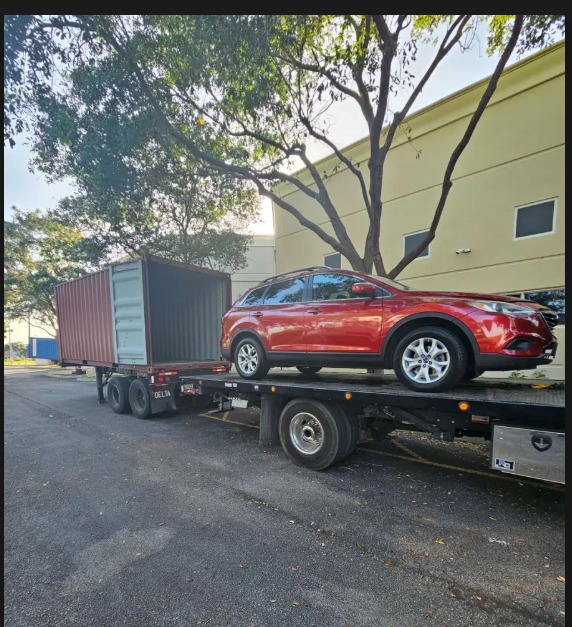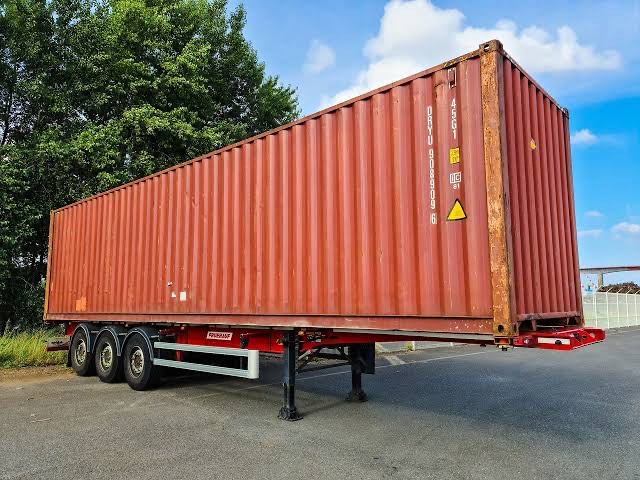Container shipping to Turkey is a reliable and cost-effective solution for transporting vehicles, household goods, heavy machinery, and commercial cargo from the USA. Strategically located between Europe and Asia, Turkey is a major global trade hub with modern ports and efficient logistics infrastructure. Whether you are shipping a container to Turkey for personal relocation or business purposes, professional container shipping ensures secure handling and timely delivery.
At All Transport Depot, we provide professional container shipping to Turkey with complete end-to-end logistics support. The cost of container shipping to Turkey typically ranges from $2,500–$4,100 for a 20ft container and $4,200–$6,800 for a 40ft container, depending on the U.S. origin port, cargo type, destination port, and shipping method. With transparent pricing and expert coordination, we ensure your shipment arrives safely and on time.
Container Sizes Available for Shipping
When planning container shipping, selecting the right container size is essential for ensuring cargo safety, cost efficiency, and smooth transit. Different container sizes are designed to accommodate everything from personal belongings and vehicles to heavy machinery and oversized cargo. Below are the most commonly used container options available for shipping to destination country.
20ft Shipping Container
The 20ft container is one of the most popular choices for international container shipping to XXX. It is ideal for small to medium-sized shipments and offers a cost-effective solution for transporting cargo securely.
Best suited for:
- One vehicle or SUV
- Household goods and personal effects
- Small commercial shipments
40ft Shipping Container
A 40ft container provides nearly double the space of a 20ft container, making it suitable for large shipments or multiple items. It is commonly used for business cargo, relocation shipments, and multiple vehicles.
Best suited for:
- Multiple vehicles
- Large household relocations
- Bulk commercial cargo
Open Top Container
Open top containers are designed for cargo that cannot be loaded through standard container doors due to height or shape. Cargo is loaded from the top using cranes and secured properly for ocean transport.
Best suited for:
- Tall or oversized machinery
- Construction equipment
- Industrial cargo
Flat Rack Container
Flat rack containers are used for heavy, wide, or irregularly shaped cargo that does not fit inside standard containers. These containers have open sides and are specially designed for oversized and heavy loads.
Best suited for:
- Heavy machinery
- Construction and mining equipment
- Large industrial components
What Can Be Shipped in a Container
Container shipping allows a wide range of cargo types to be transported safely and efficiently. Whether you are shipping personal belongings or commercial freight, containers provide secure, weather-protected space suitable for almost all types of goods. Below are the most common items shipped in containers.
Vehicles (Cars, SUVs & Motorcycles)Cars, SUVs, and motorcycles can be safely shipped in 20ft or 40ft containers, offering maximum protection during transit. Container shipping is especially preferred for luxury, classic, or non-running vehicles.
Household Goods & Personal EffectsContainer shipping is ideal for relocating household items such as furniture, appliances, electronics, and personal belongings. Both FCL and LCL shipping options are available depending on shipment size.
Commercial Cargo & General FreightBusinesses commonly use container shipping to XXX for transporting retail goods, inventory, raw materials, and packaged commercial products in bulk.
Heavy Machinery & Industrial EquipmentConstruction equipment, agricultural machinery, and industrial tools can be shipped using standard containers, open top containers, or flat rack containers, depending on size and weight.
Oversized & Project CargoLarge or irregularly shaped cargo that exceeds standard container dimensions can be shipped using flat rack or open top containers, ensuring secure handling for specialized shipments.
Safe & Secure Shipping for All Cargo TypesContainer shipping to XXX provides excellent protection against weather, handling damage, and theft, making it a reliable solution for both personal and commercial shipments.
Container Shipping Process (Step-by-Step)
Container shipping follows a simple and structured process to ensure safe and timely delivery.
Step 1: Request a shipping quote by sharing cargo details and destination.
Step 2: Book the container and confirm the sailing schedule.
Step 3: Load and secure cargo inside the container.
Step 4: Prepare documents and complete export clearance.
Step 5: Ocean freight transit to the destination country.
Step 6: Customs clearance at the destination port.
Step 7: Final delivery or port pickup.
Required Documents for Container Shipping
To ensure smooth and compliant container shipping, certain documents are required for export and import clearance. Having accurate paperwork helps avoid delays, penalties, and customs issues.
Commonly Required Documents
-
Bill of Lading (B/L) – Proof of shipment and ownership
-
Commercial Invoice – Details of cargo value and description
-
Packing List – Itemized list of goods inside the container
-
Passport or Company ID – For personal or commercial shipments
-
Import Permit (if required) – Based on cargo type and destination regulations
Additional documents may be needed depending on the nature of the cargo and local customs requirements in the destination country.
We operate and coordinate loading through strategically located U.S. facilities, providing flexible, reliable, and nationwide coverage for a wide range of cargo, including vehicles, household goods, commercial freight, and HAZMAT-compliant shipments.
Our primary loading locations include:
- Savannah, GA
- Atlanta, GA
- Los Angeles, CA
- Elizabeth, NJ
- Tacoma, WA
- Chicago, IL
In addition to facility-based loading, we also offer container door-to-ocean service, allowing a container to be delivered directly to a residence or commercial property for on-site loading, subject to access, safety, and scheduling requirements.
On-Site Container Loading Guidelines
We will deliver the ordered container to your location on the scheduled date and arrange return once loading is completed.
Important Loading Conditions
- The container will arrive on a chassis and will remain on the chassis at all times
- The container will not be placed on the ground
- The client is fully responsible for all loading activities
- Two (2) hours of free loading time are included
- Additional loading time: rate to be advised
- Weekend option: additional surcharge applies (Friday drop-off with Sunday pick-up after 5:00 PM)
- A 4-hour delivery window will be assigned, subject to traffic and scheduling conditions
- Vehicles or machinery require a proper loading ramp or dock
- Household goods may be lifted off the chassis only at the client’s cost and responsibility
- The client must ensure all required loading equipment is available, including but not limited to:
- Ramps
- Loading docks
- Forklifts
- Cranes or lifting services
- If the container is not ready for pickup on the scheduled date, a $250 per day delay surcharge will apply
- These guidelines ensure safe loading, operational efficiency, and compliance with carrier and port requirements.
Transit Time
The transit time for container shipping to Turkey generally ranges from 20 to 35 days, depending on the origin port, shipping route, and carrier schedule. Shipments from major U.S. East Coast ports typically arrive within 20 to 28 days, while shipments from the Gulf Coast may take 25 to 32 days. Shipments from the West Coast may take 30 to 35 days.
Cost to Ship a 20ft Container to Turkey
A 20ft container is ideal for smaller shipments such as one vehicle, household goods, or personal cargo.
- From East Coast USA (New York, Norfolk, Savannah): $2,000 – $3,000
- From Gulf Coast USA (Houston): $2,200 – $3,300
- From West Coast USA (Los Angeles, Oakland): $2,900 – $4,100
Cost to Ship a 40ft Container to Turkey
- From East Coast USA: $3,600 – $5,200
- From Gulf Coast USA: $3,900 – $5,700
- From West Coast USA: $4,900 – $6,800
Major Ports Used for Container Shipping to Turkey
Turkey has several major seaports handling international containerized cargo.
- Port of Istanbul (Ambarli) – One of the largest container ports in Turkey
- Port of Izmir – Serves western Turkey and industrial regions
- Port of Mersin – Key gateway for southern and southeastern Turkey
Import Duties and Taxes in Turkey
Import duties and taxes in Turkey depend on the type of goods, declared value, and customs classification.
- Customs Duty: Typically 0–20% depending on product type
- VAT: Standard 20% in Turkey
- Additional Charges: Port handling fees, customs clearance, and inspection charges may apply
FAQs
Is container shipping to Turkey safe?
Yes, container shipping to Turkey is safe and secure with sealed containers and modern port facilities.
Can I ship a car in a container to Turkey?
Yes, vehicles can be shipped safely in containers, subject to Turkish import regulations.
How long does container shipping to Turkey take?
Transit time typically ranges from 20 to 35 days.
How much does it cost to ship a container?
On average, container shipping costs $2,600–$4,200 for a 20ft container and $4,600–$7,200 for a 40ft container, depending on routing and cargo type.
What is the cheapest way to ship cargo?
For smaller shipments, LCL shipping is the most cost-effective option. For larger shipments, FCL shipping provides better security and value.
✈️ Get a Container Shipping Quote Today
Ready to ship your Container? Here’s what we’ll need to get started:
📧 Email: ship@alltransportdepot.com
📲 WhatsApp: +1 (470) 791-4497
📞 Phone: +1 (678) 528-5794
At All TransportDepot Inc., we ensure premium service for safe, secure, and reliable car air shipping worldwide.
👉 Don’t wait—Get Your Free Quote Now

Kevin is a skilled auto mechanic specializing in vehicle inspections at Big Apple Auto Shippers. His thorough inspections guarantee that every car is in optimal condition before embarking on its journey. Kevin’s dedication ensures the reliability of every shipment.





